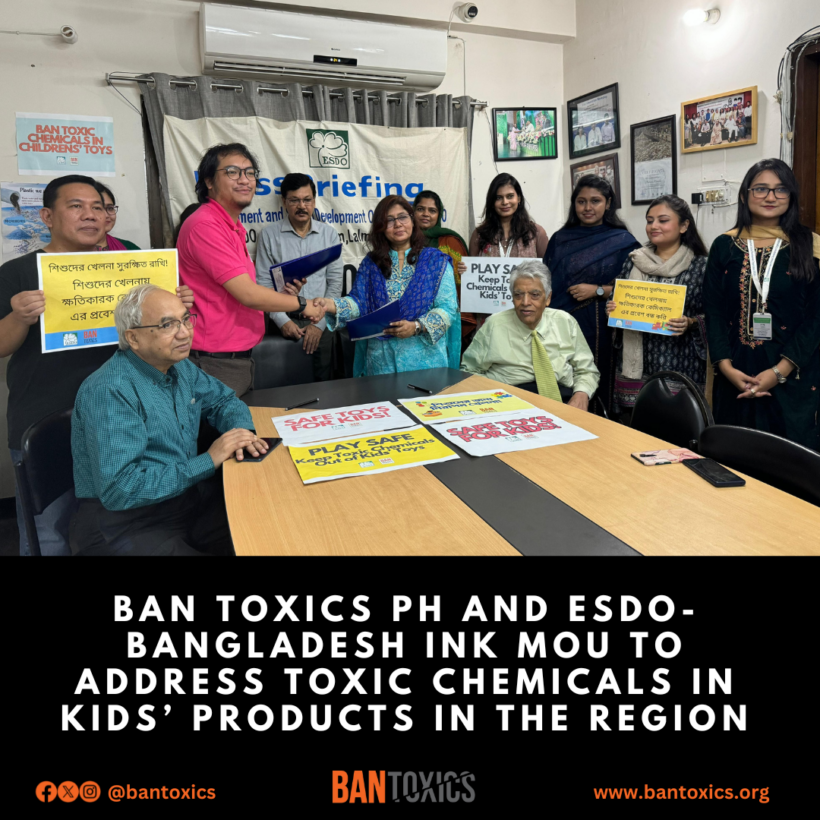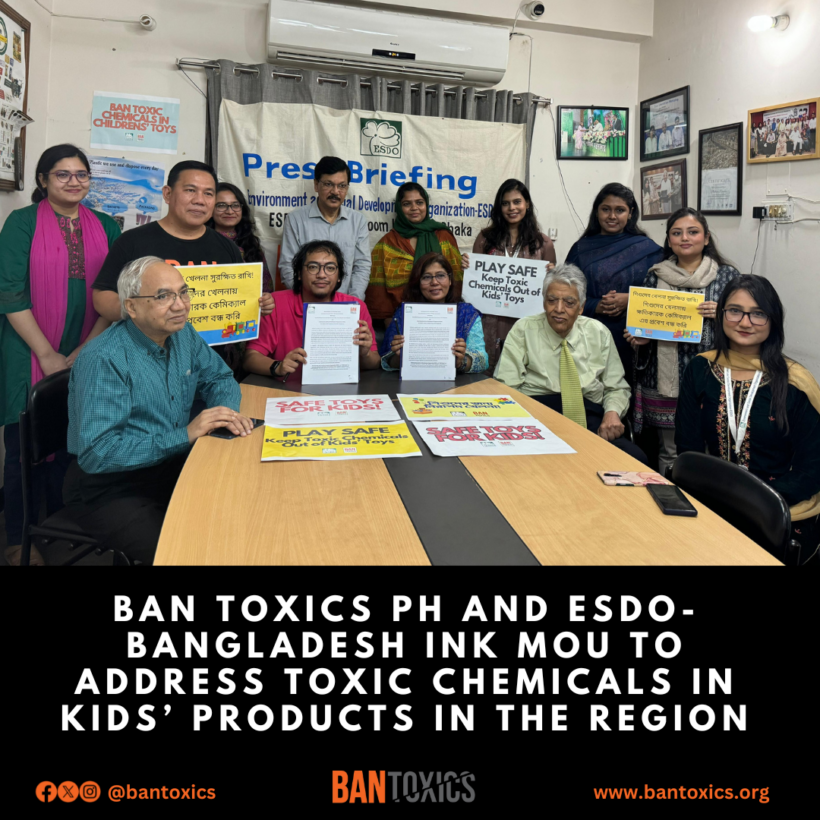Ph and Bangladesh Envi NGOs Forge Cooperation to Tackle Toxic Chemicals in Toys and Kids’ Products in the Region
Asian children are increasingly at risk from unsafe toys, including those made from recycled plastics that contain hazardous chemicals and legacy compounds banned in many markets, as highlighted by various studies. Unlike their counterparts in Europe, they face greater dangers due to inadequate and inconsistent regulations governing toy safety in the region. This assessment has driven environmental NGOs advocating for toxic-free consumer products to address this critical public health issue.
On October 3, 2024, NGOs BAN Toxics from the Philippines and the Environment and Social Development Organization (ESDO) from Bangladesh signed a pivotal memorandum of agreement (MOA) that would strengthen cooperation in advocating for safe and toxic-free children’s products. The signing, led by BAN Toxics Deputy Executive Director Jam Lorenzo and ESDO’s Executive Director Siddika Sultana, took place at ESDO’s head office in Dhaka.
The two environmental NGOs started their collaboration in 2023 to conduct a study on the presence of toxic heavy metals in children’s products in Bangladesh. The new MOA, set for a duration of five years, will continue and expand this collaboration by pursuing further research, publishing scientific studies, conducting public awareness campaigns, and developing information, education, and communication materials, among other initiatives.
“This new agreement reinforces our shared commitment to safeguarding children’s health and the environment through collaborative research and public education efforts. We are hopeful that this continued cooperation will pave the way for stronger regulations and greater public awareness of the pressing issue of toxic chemicals in children’s products in both our countries,” said Lorenzo.

Prior to the signing of the MOA, a press briefing was held to share the initial results of product
testing of 160 samples of children’s products. Laboratory analysis revealed that all samples contained one or more hazardous chemical, including mercury, lead, bromine, cadmium, arsenic, among others.
ESDO called for stricter enforcement of regulations on toxic substances in children’s products, including mandatory third-party testing before they reach the market. The organization also advocated for a ban on harmful materials, such as recycled plastics containing hazardous chemicals like bromine in children’s toys, while promoting safer alternatives.
“The presence of such hazardous chemicals in children’s products is an urgent public health issue. We must act swiftly to protect our future generations from these invisible threats,” said Syed Marghub Murshed, Former Secretary of the Government of Bangladesh and Chairperson of ESDO.
Sultana, meanwhile, stressed the long-term impacts on children’s health, saying, “Exposure to toxic chemicals at such an early age leads to developmental, cognitive, and physical issues that can last a lifetime. This is a crisis that demands immediate regulatory intervention.”
BAN Toxics Advocacy and Campaign Officer Thony Dizon highlighted that the issue of harmful chemicals in toys is a global concern that transcends borders, necessitating international cooperation and action.
“The same toys we found in local markets in Bangladesh are also sold openly in other Asian countries like the Philippines. This underscores the transboundary nature of the problem and emphasizes the need for regional and global solutions to ensure that unsafe products are removed from our markets,” Dizon added.
BAN Toxics and ESDO are set to release their joint study on plastic toys in the coming months. They will also conduct further testing of children’s products in the region, alongside efforts to promote cooperation with other civil society organizations and campaign for harmonized regulations to ensure the safety of children’s products.






